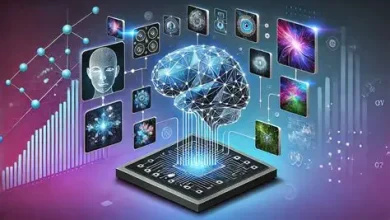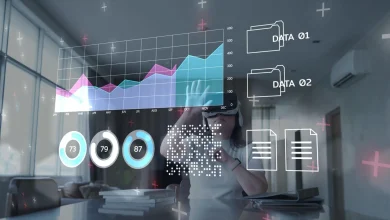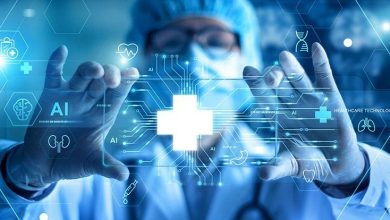Could artificial intelligence make your employees happier in the workplace? A new study from WSP found that seven in ten UK employees now believe that AI is already shaping their workplace for the better.
From increased efficiency to enhanced productivity, it’s no surprise that 84% of UK employees anticipate that the positive effects of AI and technology will persist well into the future.
The question is, could AI also improve workplace wellness? With the ability to personalise support plans, predict potential health risks and provide targeted interventions, AI continues to contribute to fostering a healthier and more productive workplace.
With this in mind, let’s take a closer look at some of the ways artificial intelligence is impacting employee wellness in 2025 and beyond.
4 Ways AI is Impacting Employee Wellness
AI continues to revolutionise workplace wellness. From data-driven decision making to tailored wellness programs, AI excels at suggesting specific resources, analysing employee participation, and identifying potential health risks, making it the perfect partner for any HR team.
Here are just some of the ways AI could improve your workplace wellness initiatives in 2025:
Personalised Wellness Programs
AI algorithms can be used to analyse various data points in a workplace. From health records to lifestyle habits to even social media activity, this data can be gathered and used to create personalised wellness plans for each employee.
Based on individual needs, AI can then suggest targeted interventions, such as specific resources for mental health, fitness programs or even one-to-one support, to ensure that every employee is considered and taken care of in the workplace.
Research has revealed that companies with targeted wellness programmes experience a 66% increase in employee productivity and enjoy significant reductions in absenteeism.
Introducing AI to your wellness program not only improves employee engagement, but it also ensures that every employee receives relevant support.
Fast Tracking Employee Communication
Employee wellness begins with powerful communication.
Opting for an AI-powered HR system like PeopleHR could eliminate poor communication patterns and make it easier for employees to seek support.
AI-powered tools can analyse employee interactions, feedback, and performance data to identify communication gaps, understand employee sentiment, and track engagement.
This data can be used to fine-tune communication strategies, proactively address potential issues, and improve overall communication effectiveness.
Predictive Insights and Early Intervention
Early intervention is essential if you want to foster a happy and healthy workforce. AI’s ability to identify potential workplace risks allows for efficient flagging and the implementation of preventive measures.
For example, you can now use AI to identify potential health risks such as stress and burnout before they begin to escalate.
Suppose your AI algorithm detects a pattern of reluctance from an employee, a dip in productivity or negative feedback in multiple reviews. In that case, you have the chance to intervene early, offering solutions to enhance their experience in the workplace.
These could be mindfulness sessions, flexible working arrangements or ongoing support to ensure that employees don’t fall below the radar.
Addressing Specific Needs
AI is making it easier to address specific needs when it comes to personalising your workplace wellness program.
With the ability to map data from wearables to detect and identify signs of stress/exhaustion, sleep patterns, and other health metrics, AI-powered tools can provide more insights into physical and mental well-being.
These insights can then be used to craft wellness programs that help workers achieve their own health goals, such as improved nutrition, stress relief, exercise plans and ergonomic working.
Can Artificial Intelligence Make Your Employees Healthier and Happier at Work?
The simple answer is yes. Artificial intelligence continues to make employees happier and healthier in the workplace in 2025.
From physical health monitoring to enhancing the employee experience, AI-powered HR tools are changing the game when it comes to workplace wellness.
Where AI tools are available, over half of UK workers report reduced stress in the workplace, and a further 1,134 employees across 12 industries believe that AI may hold the key to reversing a 15-year rise in workplace-related anxiety.
“For people who are neurodiverse or suffering from anxiety, AI could be a gift. It could take over tasks that overwhelm us and be easily trained to support our differing needs, be tailored to the best way to communicate with us and, research has shown, has the benefit of being free of the judgment or opinions some humans bring,” says Dr Phil Parker, a health & happiness expert.
“AI will be a feature of all our futures. Employers can best help staff feel part of this future through open and effective communication about both the benefits and other changes these advances will bring.”
While AI-powered wellness initiatives are still relatively new in the UK working scene, there’s no doubt that they will continue to change the course of HR roles in the coming years.





